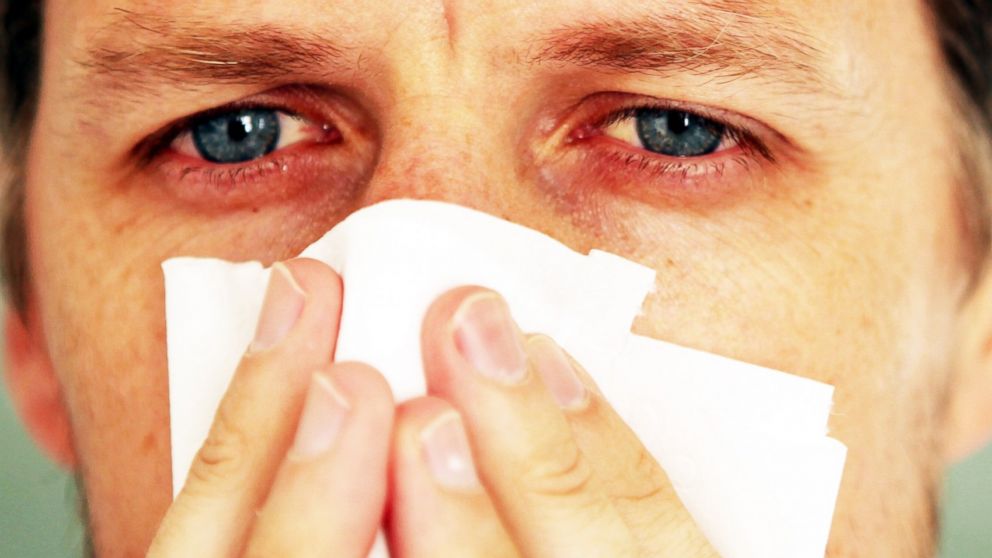5 Secrets to Outsmart Your Allergies
Tips, tests and treatments that really work.

March 21, 2014— -- intro: If you have seasonal allergies, you probably assume that you've heard all the advice out there—and despite your best efforts, you still find yourself sneezing, wheezing and tearing. But don't fear those blooming trees and piles of freshly mown grass.
"More and more, new technology is giving us a clearer picture of what causes people's allergies, allowing us to personalize treatment," says Linda Cox, MD, president of the American Academy of Allergy, Asthma and Immunology.
We got experts to share the latest info on testing advances, medication breakthroughs and natural remedies that really work.
15 Hypoallergenic Dogs and Cats
quicklist: 1category: Eating Habits for Better Sleeptitle: Seasonal symptoms don't mean you have seasonal allergiesurl:text: When you get that telltale itch in your nose come April or May, do you figure it's your tree pollen allergy acting up again? Here's a shocker: Pollen, or another spring trigger, might not be the problem. "It could be a mold allergy, which can run in summer and fall, or a year-round dust mite allergy," Dr. Cox points out. That means that making lifestyle changes, such as keeping your house drier and washing your bedding more often, might yield surprising relief.
You may not even have allergies at all, says Inderpal Randhawa, MD, assistant professor of medicine at the UCLA School of Medicine. "Sixty percent of people who respond well to taking antihistamines don't have allergies," he notes. "The antihistamine just dried out their nose, so they feel better." They may actually have a cold or asthma instead.
That's why it's always worth going in for testing if you suffer from regular allergy-like symptoms, even if you've been tested before. New allergies can develop throughout your life, and the testing technology has improved since the mid-1990s, leading to sharper diagnoses. Request ImmunoCAP blood testing and/or skin testing.
Home Remedies for Allergies: What Works?
quicklist: 2category: Eating Habits for Better Sleeptitle: It's good to stop taking your medsurl:text: Finding an allergy medicine that performs well for you feels great. Sadly, "using the same drug over and over can result in it not working anymore," says Daniel Akin, MD, an otolaryngologist in Albany, Ind. With regular use, your body can develop a tolerance to an antihistamine after two to three months. And popping a decongestant pill (like those that include the active ingredient pseudoephedrine) for longer than 10 days can harm the lining of the sinuses and throat, causing mucus to thicken.
The antidote: Switch to a different drug for two weeks. "Your old favorite might be more effective when you start using it again," says Shilpi Agarwal, MD, an integrative medicine family physician in Los Angeles. If that doesn't work, take a total pill vacation for a couple of weeks. You don't have to go cold turkey, though. Rely instead on antihistamine eyedrops, such as Zyrtec Itchy Eye Drops or Zaditor, Dr. Agarwal says. Saline nasal sprays (available at drugstores) and prescription antihistamine nasal sprays can also help. For more severe cases, your doc can prescribe steroid nasal sprays, like Flonase or Nasonex.
quicklist: 3category: Eating Habits for Better Sleeptitle: Natural cures actually helpurl:text: Your doctor might not be writing you a prescription for salmon anytime soon, but eating a diet rich in omega-3 fatty acids—including fatty fish and walnuts—can decrease risk of seasonal allergy symptoms, according to research published in the European Journal of Clinical Nutrition. "Anything you can do to reduce bodily inflammation really helps with allergies," Dr. Agarwal explains.
As for supplements, consider butterbur extract. Studies have shown that it can be as effective as over-the-counter antihistamines. The recommended dosage is 50 to 75 milligrams twice a day. Drinking nettle-root tea or taking it in supplement form (up to 300mg twice a day) may also reduce symptoms, Dr. Agarwal says. And don't discount the good old neti pot, Dr. Akin adds: "Use it twice a day while you're having symptoms to wash allergens out of your nose."
quicklist: 4category: Eating Habits for Better Sleeptitle: Some foods can make things worseurl:text: Do your allergies seem more severe around mealtime? You're probably not imagining it: Certain fruits, vegetables and nuts have proteins similar to those in pollen, so they can cause symptoms like an itchy mouth and throat in people with seasonal allergies when they eat those foods. Classic examples of irritating pollen-and-food pairs include ragweed and melons, and tree pollen and apples. So watch what you eat, or cook symptom-causing foods to break down their allergenic proteins, which should enable you to tolerate them.
14 Foods That Fight Inflammation
quicklist: 5category: Eating Habits for Better Sleeptitle: Better treatments lie aheadurl:text: For years, the only way to truly get rid of allergies has been to undergo immunotherapy, aka allergy shots. But that's about to change. Coming soon: immunotherapy pills, which allergy sufferers can take instead of going to the doctor for shots. "Two years after stopping the pills, you're still in clinical remission," Dr. Cox says. "This is a game changer."
An FDA advisory committee recently voted in favor of the safety and efficacy of sublingual immunotherapy tablets for grass pollen and ragweed. They're anticipated to be FDA-approved by midsummer and available to patients soon after.
In the meantime, the FDA just approved Nasacort Allergy 24HR, a prescription corticosteroid nasal spray, as an OTC med, so now this highly effective treatment will be available without a doctor's say-so. As with the Rx version, the spray is a great option when less potent meds aren't offering relief. But if it doesn't work, see your doc. With all the options in the allergy world now, she should be able to devise a plan that will squash your symptoms for good.
This article originally appeared on Health.com.